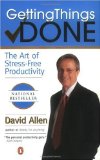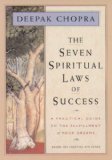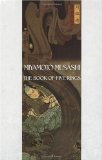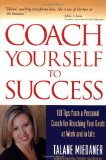Just as every organization needs someone to actively and ruthlessly fend off complexity, so do every one of us need to be our own, personal Chief Simplicity Officers. This blog focuses on simplifying business — particularly the business of developing software — so, only occasionally do I blog about simplifying life, in general. However, for further reading on the subject, I can highly recommend the following books and sites:
Time Management
 Getting Things Done: The Art of Stress-Free Productivity by David Allen [On Amazon] — This is, by far, the best time-management book I’ve ever read, and I’ve read a lot of them. I’ve been following Allen’s techniques for a couple of years now. I also use the “Things” software for the Mac and iPhone, which make following GTD a snap.
Getting Things Done: The Art of Stress-Free Productivity by David Allen [On Amazon] — This is, by far, the best time-management book I’ve ever read, and I’ve read a lot of them. I’ve been following Allen’s techniques for a couple of years now. I also use the “Things” software for the Mac and iPhone, which make following GTD a snap.
http://www.davidco.com/ — The official GTD site.
http://www.43folders.com — Another very GTD-ish site.
en.wikipedia.org/wiki/Getting_Things_Done

Personal Kanban: Mapping Work | Navigating Life by Jim Benson and Tonianne DeMaria Barry makes a terrific follow-on to David Allen’s GTD. Kanban is a technique used in business to optimize workflow. Benson and Barry begin by describing the basics of Kanban and then show how it can apply to optimizing an individual’s efforts at going from “ready” to “doing” to “done.”
Misc. Tips, Tricks, and Shortcuts (Technical and Otherwise)
http://www.lifehacker.com — How to “hack” your life.
Ancient Philosophy
 The Seven Spiritual Laws of Success: A Practical Guide to the Fulfillment of Your Dreams by M.D. Deepak Chopra [On Amazon] — This is a short, compelling book. I read it from cover to cover on a flight from Northern to Southern California. I couldn’t believe how easily Chopra explained his thoughts to me. It was the first description of anything “spiritual” — Eastern philosophy, Western, or otherwise — that ever truly clicked with me. It’s as if he wrote it specifically for someone of my personality type. So, the book became glued to my left hand for a while. I read it a second time in its entirety the next day, and then kept rereading and absorbing select passages. Two of the seven laws, in particular, were especially influential to me at the time: the Law of Least Effort (“this moment is as it should be”) and the Law of Detachment, especially one bit about not forcing solutions.
The Seven Spiritual Laws of Success: A Practical Guide to the Fulfillment of Your Dreams by M.D. Deepak Chopra [On Amazon] — This is a short, compelling book. I read it from cover to cover on a flight from Northern to Southern California. I couldn’t believe how easily Chopra explained his thoughts to me. It was the first description of anything “spiritual” — Eastern philosophy, Western, or otherwise — that ever truly clicked with me. It’s as if he wrote it specifically for someone of my personality type. So, the book became glued to my left hand for a while. I read it a second time in its entirety the next day, and then kept rereading and absorbing select passages. Two of the seven laws, in particular, were especially influential to me at the time: the Law of Least Effort (“this moment is as it should be”) and the Law of Detachment, especially one bit about not forcing solutions.
 The Book of Five Rings by Miyamoto Musashi [On Amazon] — This 17th century classic about self-respect, self-development, discipline, honesty and more was written by a samurai warrior for samurai warriors. But, it is just as applicable for our modern culture, after a fashion, by reading between the lines.
The Book of Five Rings by Miyamoto Musashi [On Amazon] — This 17th century classic about self-respect, self-development, discipline, honesty and more was written by a samurai warrior for samurai warriors. But, it is just as applicable for our modern culture, after a fashion, by reading between the lines.
There are many different translations to choose from. Victor Harris’s translation is particularly recommended as doing a good job of putting Musashi’s work into context. Some translations work better than others, depending on your perspective, be you a student of the marshal arts, or a student of business.
Life Coaching
 Coach Yourself to Success : 101 Tips from a Personal Coach for Reaching Your Goals at Work and in Life by Talane Miedaner [On Amazon] — Don’t be fooled by the subtitle. “101 Tips” is putting only it mildly. These are genuine “power tools,” each one as useful and versatile as a power drill or a table saw is to a handyman. Here are just a few of what I found to be Miedaner’s key points (for me):
Coach Yourself to Success : 101 Tips from a Personal Coach for Reaching Your Goals at Work and in Life by Talane Miedaner [On Amazon] — Don’t be fooled by the subtitle. “101 Tips” is putting only it mildly. These are genuine “power tools,” each one as useful and versatile as a power drill or a table saw is to a handyman. Here are just a few of what I found to be Miedaner’s key points (for me):
- Don’t waste time building castles on sand (p. 2)
- It’s important to eliminate annoyances from your life (p. 3)
- Days fly by when you always have something to look forward to (p. 28)
- Know the 6 different reasons why we procrastinate and how to address each one (p. 97)
- To get what you need, you cannot seem needy (p. 105)
- That “there is no try” (as Yoda would put it) actually means “don’t struggle” (p. 165)
What you get out of this book will, undoubtedly, be quite different, but just as profound.